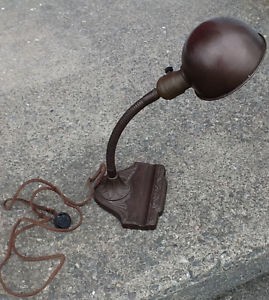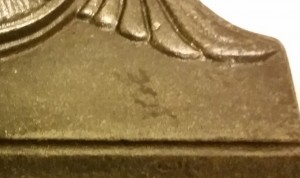Art Metal Guild Desk Lamp (Circa 1940)
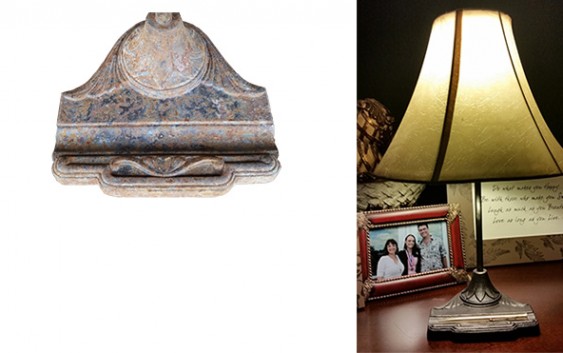
This is by far one of my favorite finds. When I first found this 1940 Art Metal Guild desk lamp, I thought it was a wall sconce. Moreover, it was rusted, paint was falling off and my wife absolutely hated it (score!). It was the classic ugly duckling.
I usually will not restore an object. I would rather have it sweaty and original than to restore it and lose the historical integrity. In this case I bought it specifically to restore. I am going through a cast iron phase and was looking for scrap to practice cleaning up.
After purchasing it, I found the following markings on the bottom: “Art Metal Guild, BKLYN NY 1”. Doing some research I found a reference to the guild in the September 1940 edition of Electrical Workers and Operators. I also found other examples of my lamp, but the configuration is different. I am not sure if my lamp originally had a movable arm and cup shade (see the bottom of this post for an example). All evidence indicates it is a 1940s desk lamp and the pieces are original. While I cannot find the exact configuration, the lamp body is a perfectly aligned with the post body. If someone did marry two things together to make this lamp they hit the jackpot. The post is comprised of a thick gauge metal that would not be easy to fabricate.
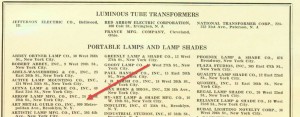
Step 1: The Cleanup with a Surprise
Here is the lamp in its original grungy state. I feel a little bad sanding it down.
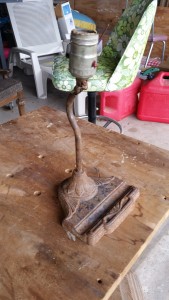
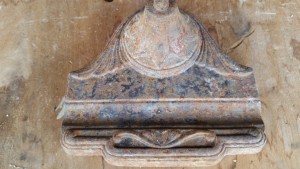
It’s hard to see now, but if you look close you will see where one of the guild member’s name (Joe) was etched and painted on the piece prior to its original painting. In doing some research, it was not uncommon for objects to get labeled with people’s names during the manufacturing process. Workers were often paid by the piece, and this marking would have been used to track finished pieces. Also the marking is easily covered by the thick lacquer paint of the day.
After sanding it, I couldn’t bring myself to restore the black lacquer finish. In part the Art Deco look in the polished cast iron was really beautiful. Plus, if I put the heavy lacquer paint on it would once more cover Joe’s name. As such, I put on a nice clear lacquer coat to prevent rust but allow the metal to shine. Side note, look how well the original lacquer paint covered the casting imperfections. Sure lacquer stinks, has to be applied in a well ventilated area and probably causes cancer, but dang it covers like silk!
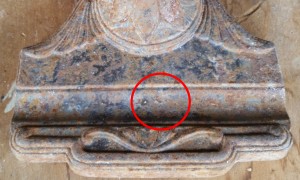
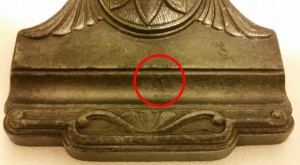
Step 2: The Fixture
I wanted to use as much of the original lamp as possible. If the post and light socket was replaced, it was done a LONG time ago. The fixtures used a porcelain hosing with a real copper connection for the lightbulb. It was screwed together with brass screws. Yes, brass and copper do not get along (dissimilar metals). It was pretty nasty in the housing.
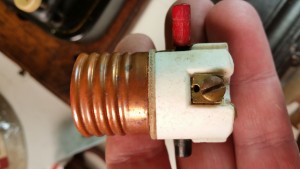
Bad news, the socket did not work. Good news, it was all screwed together. So I was able to take it apart, clean it and return it to good working order.
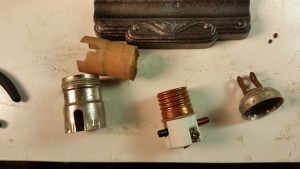
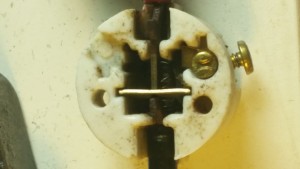
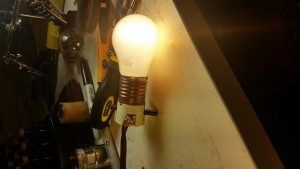
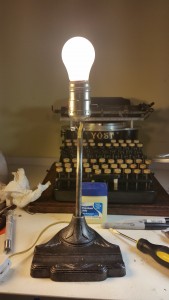
Step 3: Finding a Lampshade
I tried to find a cup shade similar to the ones found on the bendable arm version. No luck. So I went to Goodwill and found a nice shade for $2. Note you can still see Joe’s name etched on the piece.
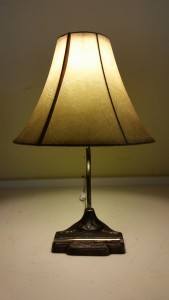
Summary:
While I discourage restoration of most items, I really am happy with the way this one came out. I am not a 100% sure the post is real, so taking some liberties with it seems ok. Plus exposing the name below the surface paint is really cool.
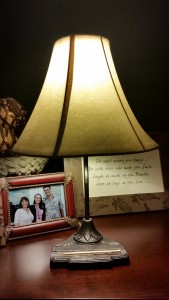
History:
Electrical Workers and Operators
Example of similar base with classic cup shade:
